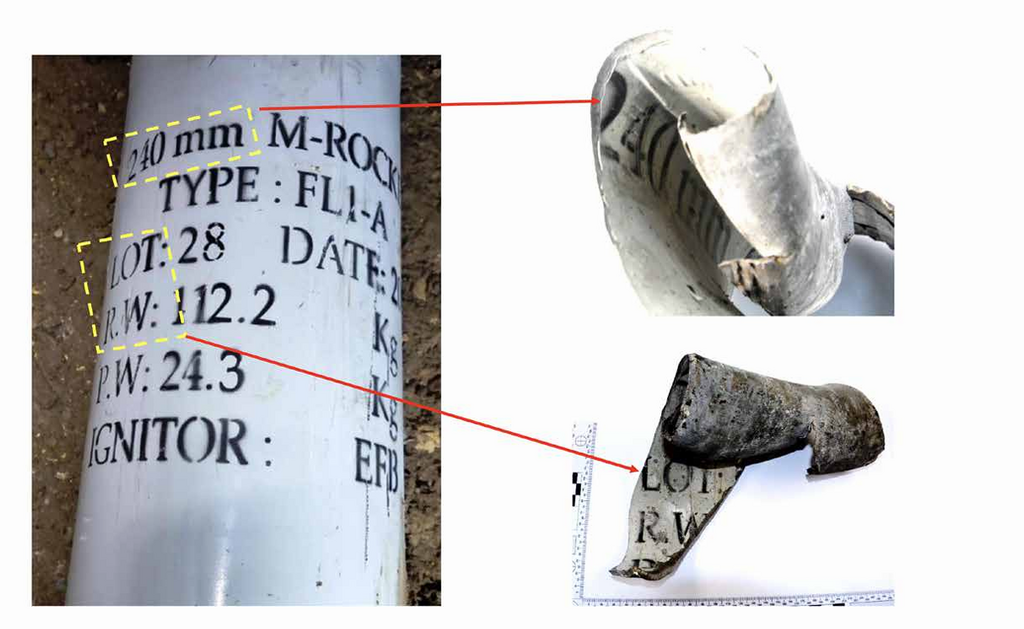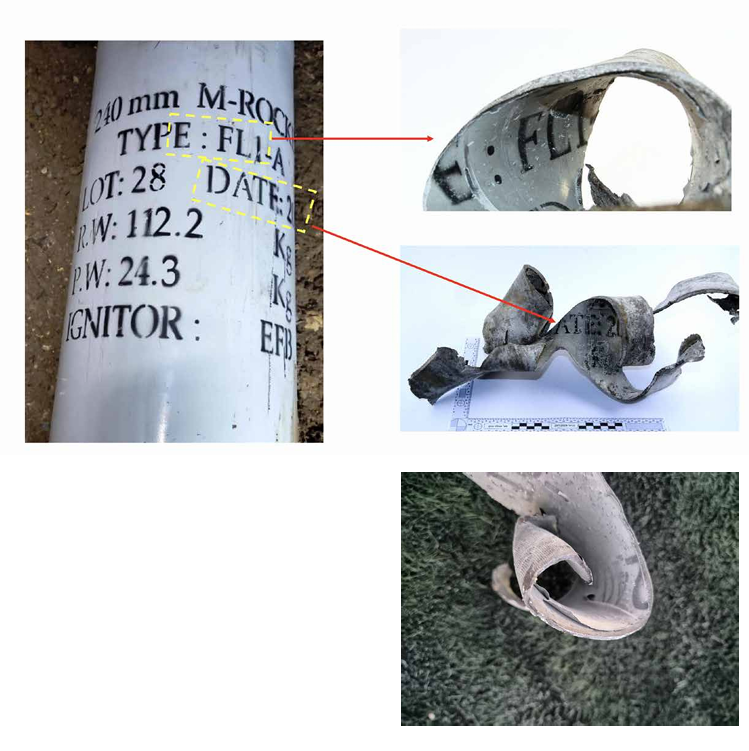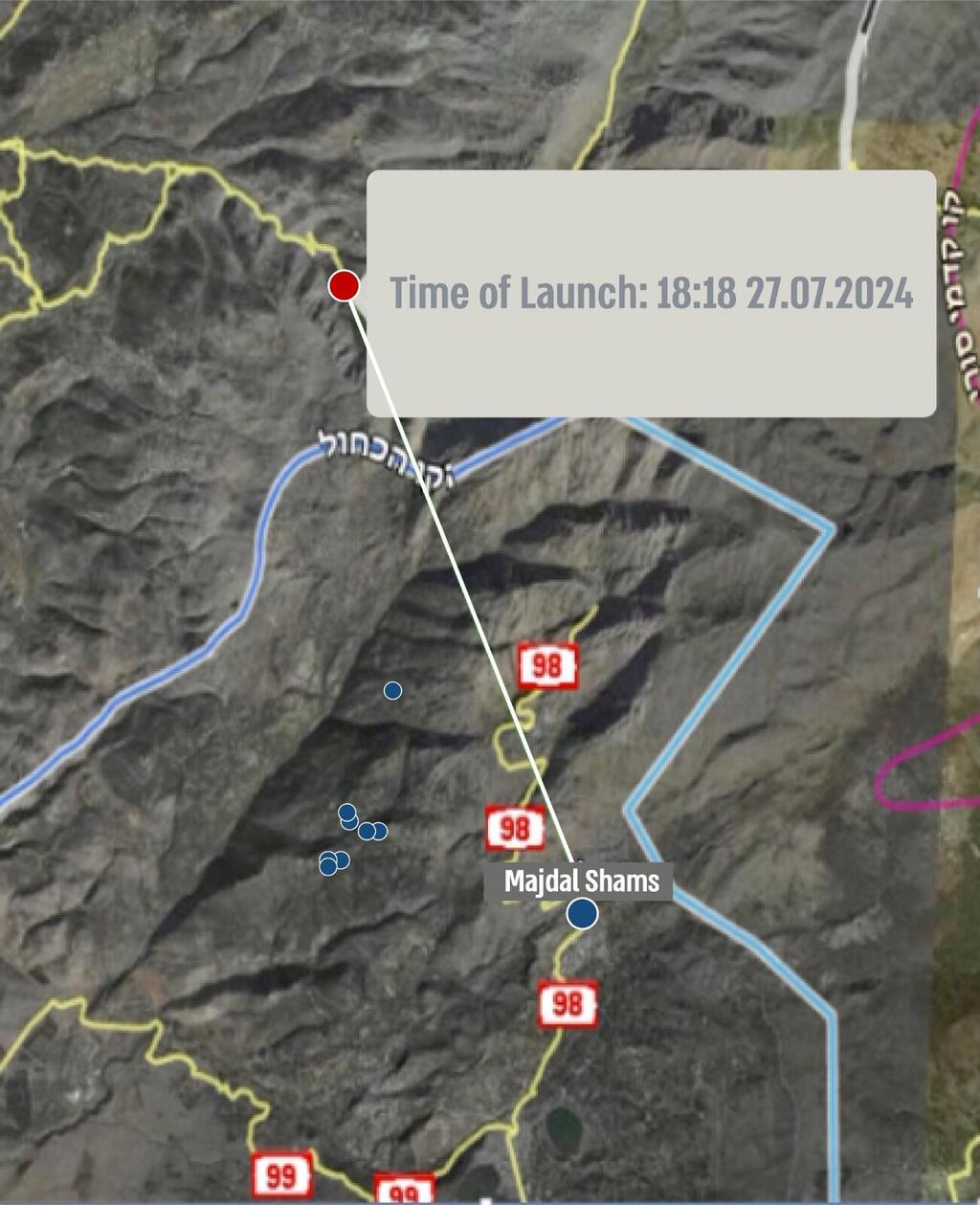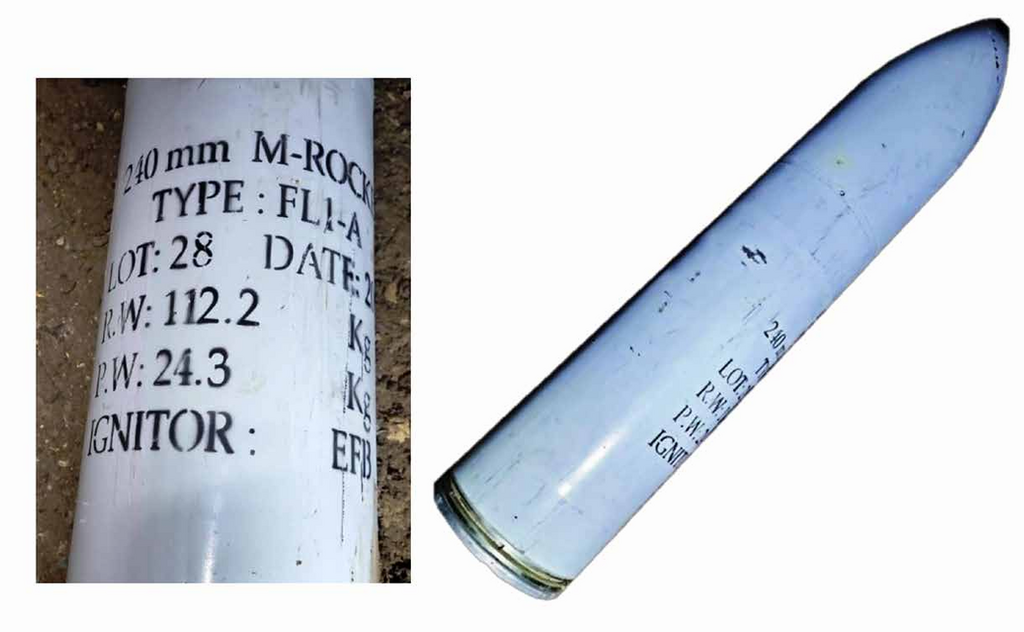Getting your Trinity Audio player ready...
The IDF on Sunday presented evidence that the projectile that killed at least 12 Druze children and teenagers and injured dozens others at a soccer field in the northern Israeli town of Majdal Shams was an Iranian-made rocket and part of Hezbollah's arsenal.
The army released images of the fragments recovered from the impact site which matched old photos of the Falaq-1 rocket.
4 View gallery


Rocket fragments recovered from impact site in Majdal Shams
(Photo: IDF Spokesperson's Unit)
4 View gallery


Rocket fragments recovered from impact site in Majdal Shams
(Photo: IDF Spokesperson's Unit)
The Falaq-1 rocket, developed by Iran, is a surface-to-surface missile known for its significant range and destructive power. It has a range of up to 10 kilometers (approximately 6.2 miles) and is capable of carrying a substantial explosive payload.
In January 2024, Hezbollah claimed for the first time to have used the Falaq-1 in an attack against the IDF. The Falaq-1 is part of a series of rockets used by Iranian-backed groups, including Hezbollah.
Hezbollah has vehemently denied firing the rocket that struck Majdal Shams on Saturday, a claim largely echoed by Arab media. Some online users have even circulated unfounded claims that a failed Israeli Iron Dome interceptor missile caused the carnage. The Lebanese terrorist group claimed responsibility for 12 separate attacks that day, launching salvos of dozens of rockets in some of the assaults.
4 View gallery


Route of Hezbollah rocket traced from north of southern Lebanon's Chebaa to Majdal Shams
(Photo: IDF Spokesperson's Unit)
The IDF named Ali Mohammed Yahya as the Hezbollah commander supposedly responsible for the attack on Majdal Shams. The IDF claimed that Hezbollah launched the rocket from an area north of the village of Chebaa in southern Lebanon, about a mile from the Israeli border, near the contested Mount Dov area from which Hezbollah frequently demands Israeli withdrawal. This region is a known launch site for Hezbollah's anti-tank missiles, rockets and drones.



